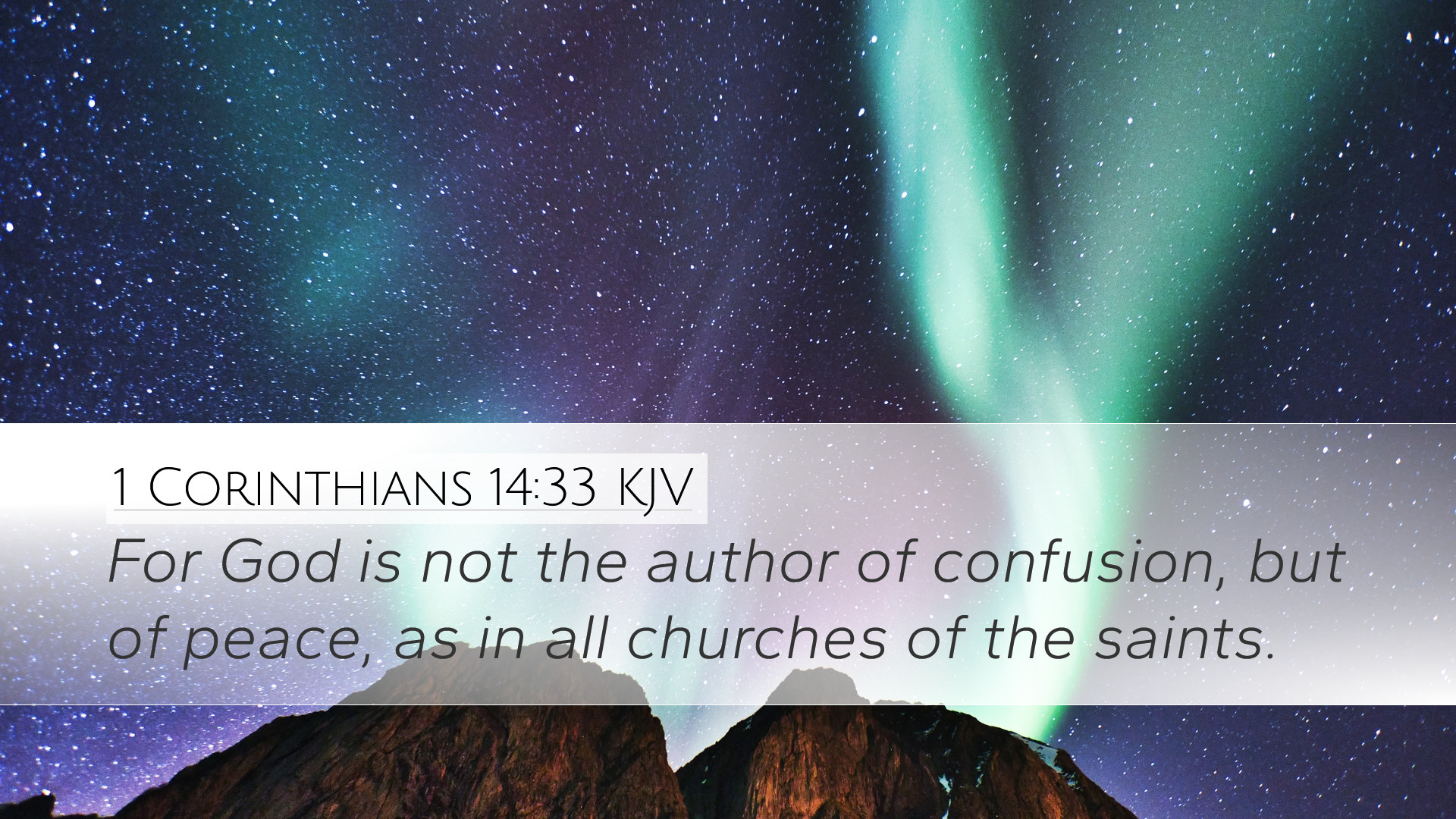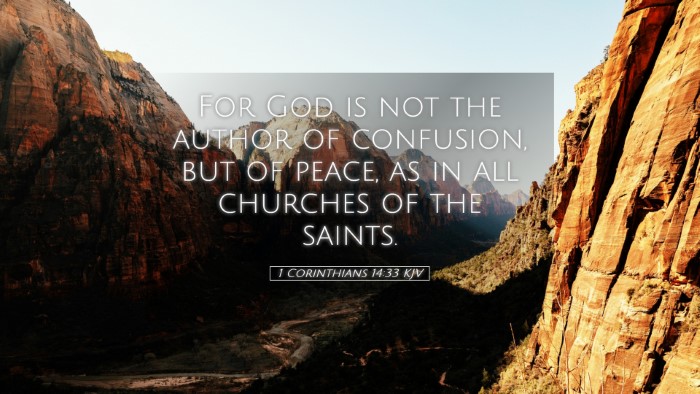Commentary on 1 Corinthians 14:33
Verse: "For God is not the author of confusion, but of peace, as in all churches of the saints." (1 Corinthians 14:33, KJV)
Overview
This verse serves as a critical reflection point within the context of Paul's discourse on order in worship and the use of spiritual gifts. Paul addresses the Corinthian church, which was rife with disorder, particularly during congregational gatherings. The apostle seeks to instill an understanding of the divine nature of God in contrast to the confusion present within the church.
Theological Significance
Paul's assertion that "God is not the author of confusion" underscores a fundamental belief in the character of God as being fundamentally oriented towards peace and order. The nature of God is integral to understanding the principles of worship and community life within the early church.
Insights from Commentators
-
Matthew Henry:
Henry notes that this verse emphasizes God's role in establishing order rather than chaos. He highlights that the confusion in worship not only detracts from the reverence of God but also has damaging implications for the unity and peace of the church. He states that where the spirit of the Lord is, there is liberty, but it is a liberty bound by divine order.
-
Albert Barnes:
Barnes expounds upon the contrast between divine peace and human confusion. He advises that the Corinthian practices, characterized by loud and disorderly expressions, contradicted the nature of God. He points out that the apostle's instruction is a call for adherence to a decorum in worship that reflects God’s character, thereby fostering an atmosphere conducive to spiritual edification.
-
Adam Clarke:
Clarke approaches the verse by focusing on the broader implications for church governance and spiritual practice. He emphasizes the necessity for clarity and structured worship, reminding the church that disarray does not reflect divine inspiration. Clarke references the ancient practices of the Gentiles and how disorder was associated with pagan worship as a critical distinction from Christian worship, which should embody peace.
Practical Applications
This verse has significant implications for church leadership and congregational life today. Here are some pastoral and practical considerations drawn from the combined insights of the commentators:
- Order in Worship: Church leaders should promote worship that is thoughtful and orderly, guiding congregants to engage in practices that enhance rather than distract from collective worship experiences.
- Promote Peace: Emphasizing the peace of God as a central tenet allows congregations to create an environment where members feel safe to express their spiritual gifts without fear of chaos or confusion.
- Education on Spiritual Gifts: Ensuring church members are educated about the purpose and nature of spiritual gifts will help affirm their place within the body of Christ while encouraging unity.
- Conflict Resolution: Paul’s words encourage the church to be proactive in resolving conflicts, recognizing that divisions stem from disorder and that reconciliation fosters peace.
Conclusion
In summary, 1 Corinthians 14:33 encapsulates a key principle for any Christian community: the importance of divine order and peace. As we reflect on the insights from respected public domain commentators, we are invited to consider our own practices and interactions within the church. By adhering to the teachings of Paul, we embrace a structure that honors God and supports the fulfillment of His purposes among His people.


